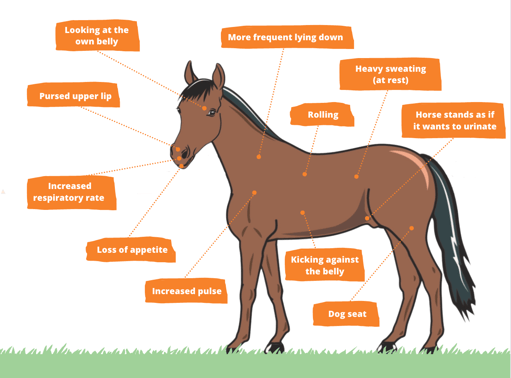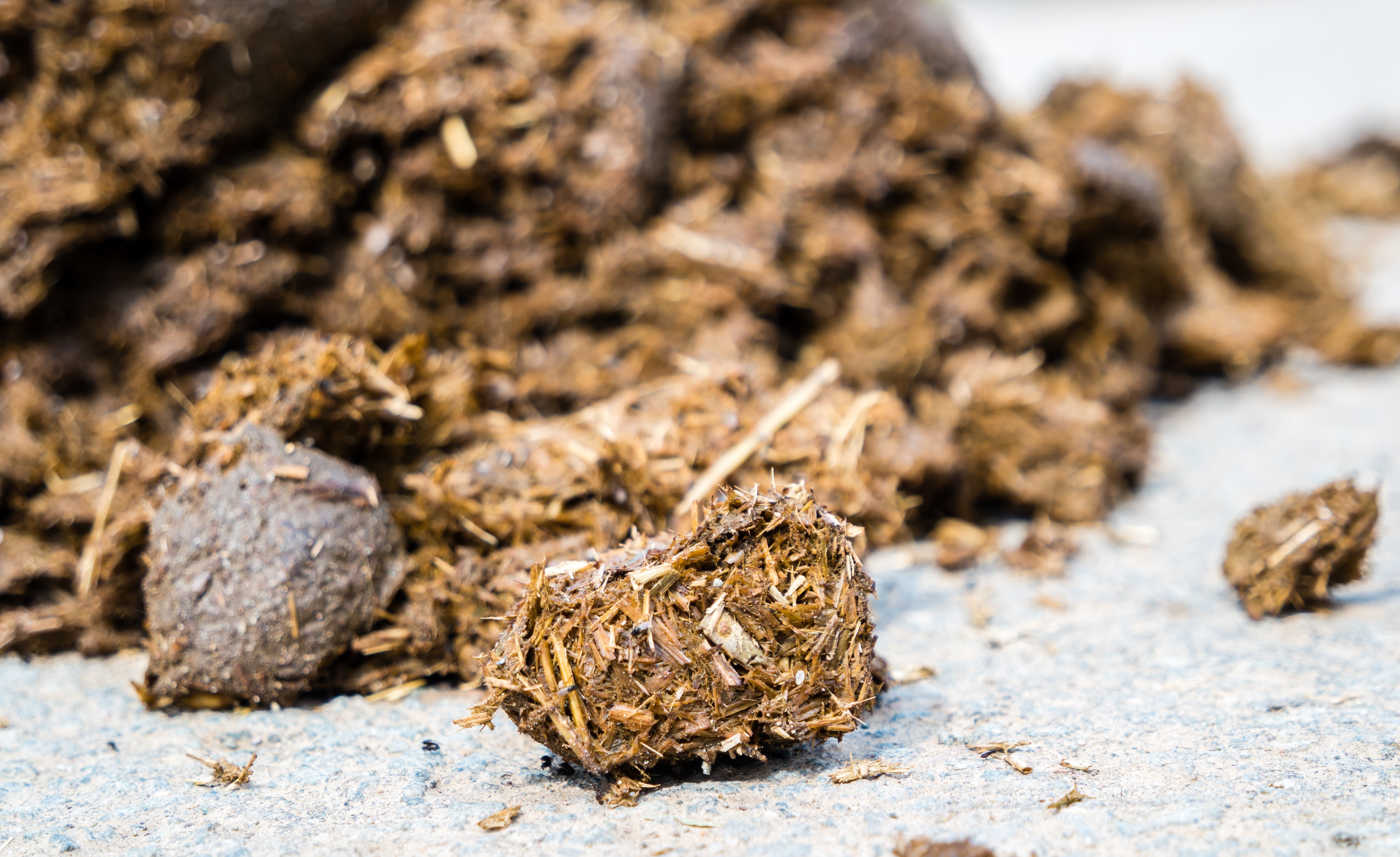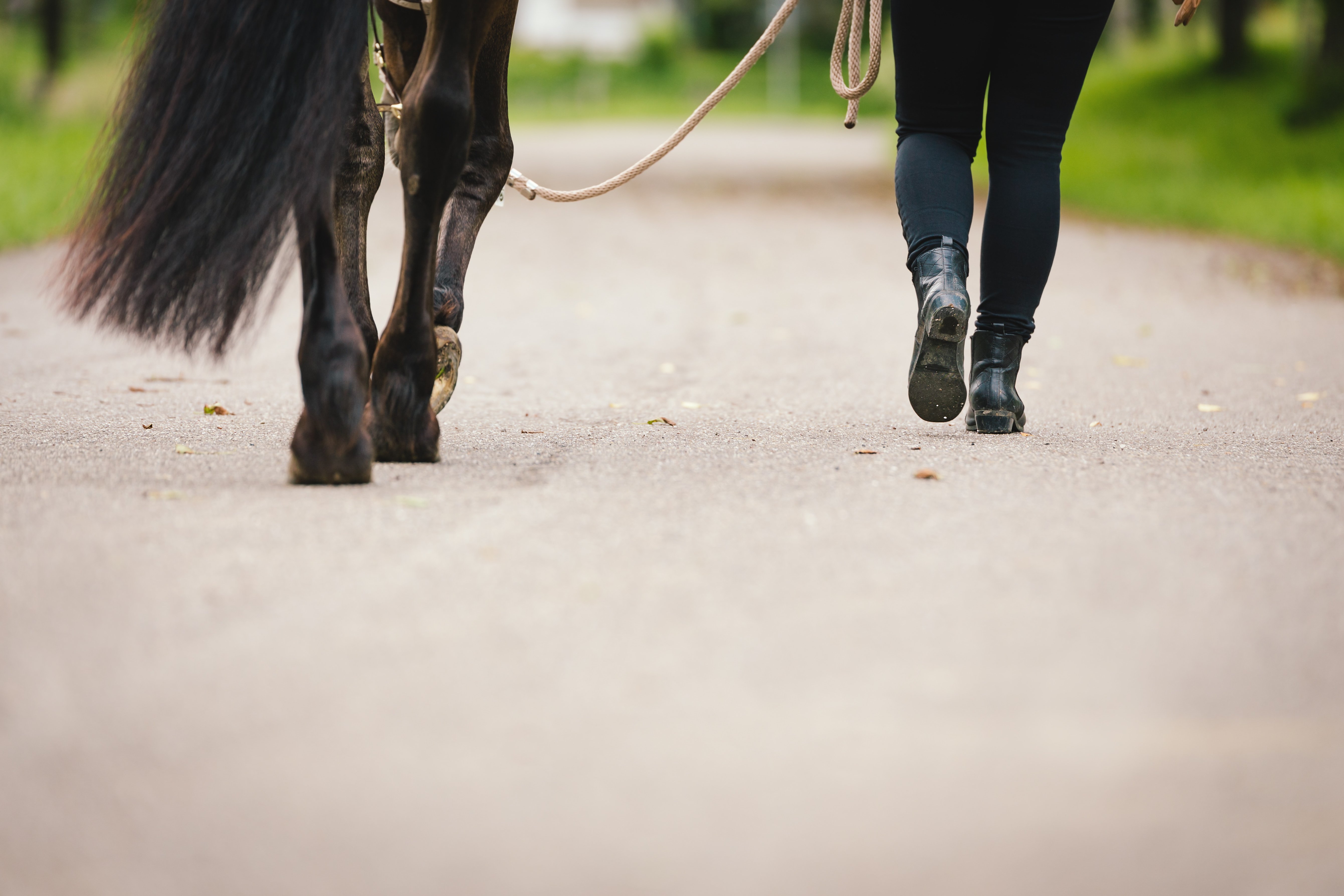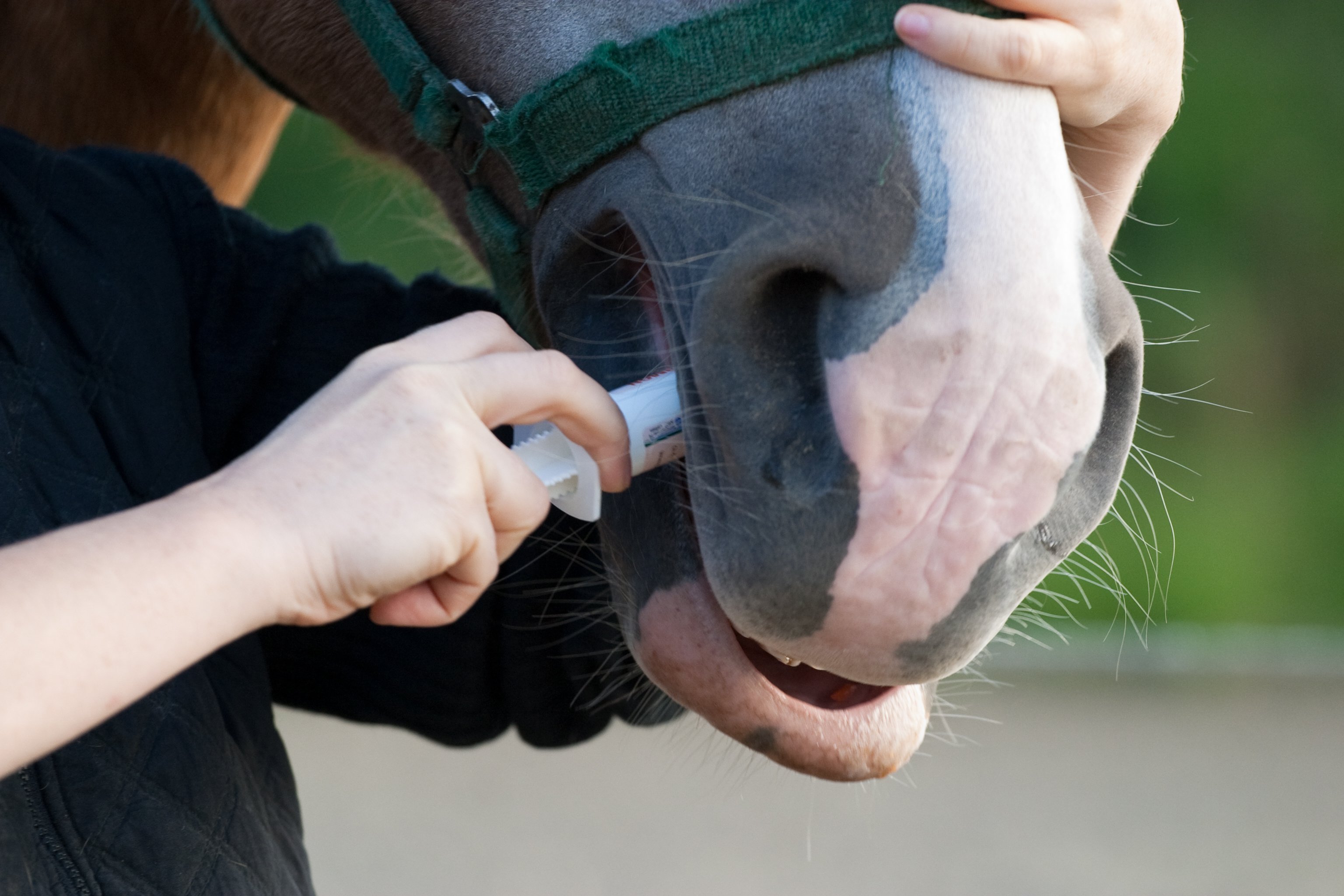My horse has a dull coat since the stomach ulcer. What can I do?
1 min. read time
Audio version – listen to this article easily
We have put together 30 tips and tricks for you so that you can act quickly and correctly in the event of acute colic. You will learn how to interpret the symptoms correctly, how to provide first aid in an emergency and what you need to bear in mind during aftercare.
Imagine: You come to the stable and your horse is behaving differently than usual. It's a moment of shock because you suspect colic. The following questions run through your mind:
Read everything about colic in horses from the first suspicion to aftercare below.
1. Your horse is behaving strangely? To recognise typical colic symptoms, you need to know your horse well and how it behaves "normally". So good animal observation is super important!
2. These are typical colic symptoms

3. Check your horse's TPR values. TPR stands for temperature, pulse and respiration. You should know your horse's resting values to notice a change. The resting pulse should be between 28 and 44 beats per minute, the respiratory rate between 8 and 16 breaths per minute and the body temperature between 37.5 and 38.2 degrees Celsius.
4. Check if there is a pile of droppings in your horse's stall or run. Missing or reduced droppings may indicate colic. Horses defecate five to twelve times a day, again you should know your horse to notice a change.

5. You can listen to your horse's bowel sounds. This is easier with a stethoscope, of course, but it can also be done by simply placing the ear at the level of the flank. In a healthy condition, you should hear continuous, expiring sounds on the left side, and gurgling sounds on the right side. If the bowel sounds are barely audible, this indicates reduced bowel activity, which may indicate engorgement. Particularly loud bowel sounds, on the other hand, indicate gas colic.
6. Another indication is the capillary filling time. You can see this in your horse's mouth, more precisely on the gums. It gives information about the circulatory condition and the blood pressure. With your fingertip you press briefly on the gums of the jaw. This interrupts the blood circulation so that the gums become pale at the point of pressure. The time it takes for the blood to return to the original colour is called the capillary filling time. Two seconds is normal. If the filling time takes longer than four seconds, the horse's life is in acute danger.
7. Call a vet directly, regardless of the severity of the symptoms. Colic is not to be trifled with. If you wait too long, small problems can turn into big ones.
8. Give as much information as possible about your horse's condition on the phone so that the vet can better assess the situation and possibly give you tips for first aid on the spot.
9. Keep calm! Stress is transmitted to your horse very quickly and this is the last thing your horse needs right now.
11. Take your horse for a walk. Exercise stimulates intestinal mobility and also distracts the horse. Many of the milder colics improve with exercise. 45 to 60 minutes of brisk walking is recommended. The horse's behaviour should continue to be observed.

12. Rolling - yes or no? You may let your horse roll, but you should always motivate it to get up. Horses that lie down for too long can get circulation problems. If your horse has a tendency to stand up badly or to get stuck frequently, you should avoid rolling.
14. Your horse should not have access to food during colic. If your horse is in a straw box, it is worth considering putting him on shavings for the time being or going to another quiet place where the vet can examine him.
15. Avoid access to water until the vet has examined your horse and can insert a feeding tube. If the stomach is distended, drinking could cause a ruptured stomach.
16. Do not administer medication without consulting your veterinarian. Diagnosis can be complicated if painkillers mask the symptoms.
17. At the first clinical signs, start preparing for possible transport to the equine clinic. Do you have your equine passport to hand? Do you have a trailer? Is it functional and ready for use?
19. Do not deviate from your veterinarian's treatment plan. Administer medication correctly and follow the recommended protocol for the full prescribed duration. If you have any concerns, ask your veterinarian or get a second opinion before changing anything on your own.
20. Follow your vet's feeding protocol and change feeds slowly to allow the gut microbiota to adjust to the new food and to avoid upsetting the gut flora. Try to make the change to a new feed gradually over at least ten days.
21. The most important feed after colic is roughage. This should be available permanently, if possible. If your horse is a light feeder, you should still feed at least 1.5 kg of roughage per 100 kg of your horse's body weight per day. You can distribute the portions throughout the day.
.jpeg?width=4500&name=AdobeStock_104437073%20(3).jpeg)
22. Avoid feeding breaks of more than four hours. It is better to feed smaller portions so that your horse is continuously occupied. On the one hand, this promotes saliva production so that the stomach acid is better buffered by the bicarbonate in the saliva, and on the other hand, your horse will not get bored so quickly because it is busy eating.
23. If you do not want to or cannot completely do without concentrated feed, you should give several smaller portions throughout the day. The horse's structural needs are not sufficiently met by concentrates, so horses chew too little and less saliva is produced. The result is a drop in the pH-value in the horse's stomach, as there is not enough saliva to buffer the constantly produced stomach acid. The too low pH value leads to irritations and lesions of the stomach lining, up to and including stomach ulcers.
24. Encourage your horse's water intake after colic treatment. If your horse takes in enough water, this can reduce the risk of future colic. Provide access to lukewarm water in winter and cool water in summer. Horses drink about 30 to 60 litres a day. Buckets can be used to control the amount of water drunk.
25. Provide regular exercise. Free exercise is especially important for the horse's well-being. In addition, intensive training should not be followed by a long break without exercise, as this can lead to cross-contamination, i.e. muscle over-acidity.
26. Do you keep an eye on parasite management? Deworming is an important issue, as it is not uncommon for colic to be the result of worming. Strategic parasite control is recommended, and your vet can help you with this, too.

27. Sand paddocks pose a risk of sand colic. Horses can ingest large amounts of sand when eating off the ground here, so use troughs or hay nets for feeding in the paddock.
28. If your horse has a history of colic, consider changes in management or feeding. Discuss with your vet what you can do explicitly to reduce the risk of further colic.
29. Prevent stomach ulcers in your horse, as these are often the cause of colic. Large amounts of roughage, small amounts of concentrates in several portions a day and a stomach supplement like Equine 74 Gastric can help your horse with stomach problems. Find out what makes Equine 74 Gastric so special here.
30. Do you have surgical insurance for your horse? Colic surgery can cost a lot of money. This is where comprehensive surgery insurance comes in handy, after all, you don't want to be faced with the decision of having to put your horse to sleep, do you?
Of course, we wouldn't want you and your horse to be in the situation where you have to use these 30 helpful tips, but it's certainly better to be prepared just in case. We have written a whole e-book on the subject of colic, which we would also like to recommend to you. Click here to get to our e-book. Have fun reading it!
On our topic page you will find a lot more information and links on the topic of colic in horses. The possibilities for preventing colic in horses are also described here.
Equine 74 Gastric
Buffers the excess acid in the horse's stomach instead of blocking it.
Equine 74 Stomach Calm Relax
Supports the nervous horse stomach in stressful situations.